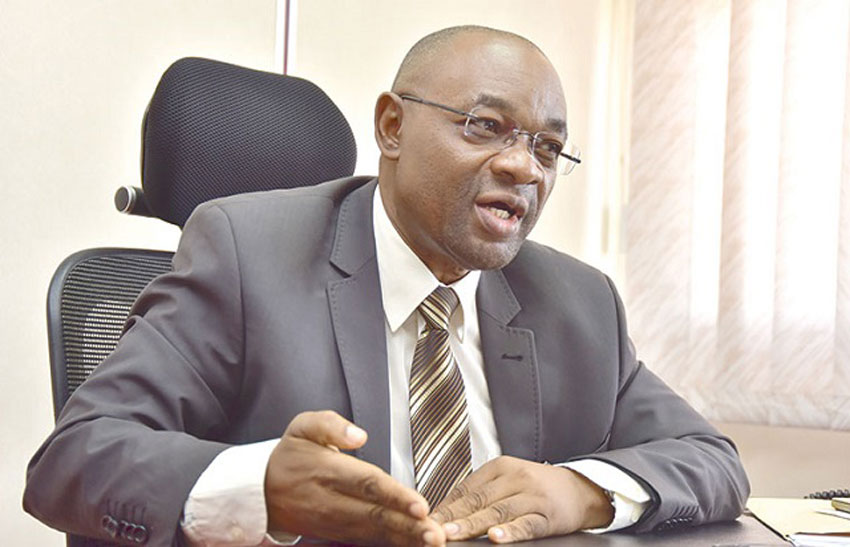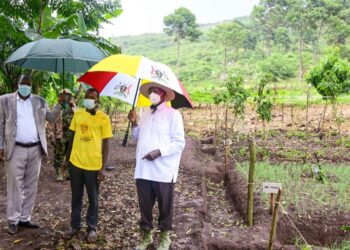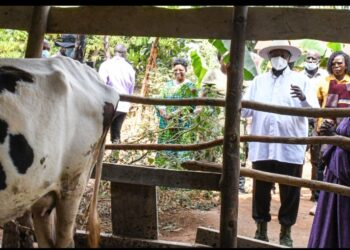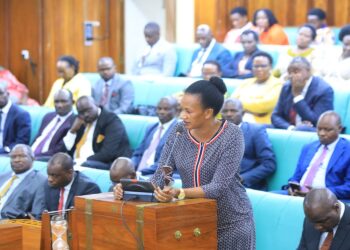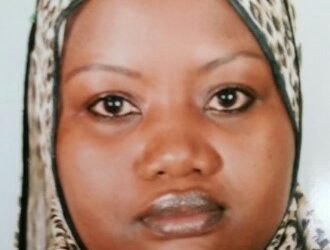The Government, through its Ministry of Local Government, and the Lives and Livelihoods Fund (LLF) last Friday announced that over Shs176 billion will be spent on the Local Economic Growth Support (LEGS) project as one way of improving the lives of more than one million people across Uganda’s rural areas.
The project is one of the tools government is going to use in accelerating the achievements of Uganda’s Third National Development Plan (NDP III) and Sustainable Development Goals (SDGs) by contributing to poverty alleviation and reducing economic disparities within rural communities.
According to the Minister of Local Government, Raphael Magyezi, by the end of the five-year project, LEGS will have positively impacted the living conditions of more than one million people across 17 of Uganda’s rural districts by improving livestock production by 25 per cent, increasing access to drinking water by 75 per cent, financing the acquisition of 729 pieces of farm equipment, and financial support for farmer groups across a variety of agricultural produce, among other initiatives.
Already, more than 6,000 small-hold farmers are benefiting from the LEGS project. The small-scale farmers have received 4.3 million seedlings for high-value cash crops (coffee, tea, vanilla) for the export market; 375 tons of organic and chemical fertilizers; 20 kilograms of fruits & vegetable seeds for income and nutritional security; and 1,821 tools and equipment.
“There is no doubt that the Government of Uganda is committed to making remarkable progress in our quest to stimulate local economic growth and development. Our top agenda involves taking the nation from low to middle-income status by collaborating with like-minded players in the private sector to stimulate transformative growth across Uganda’s rural communities. Sustainable development is strongest when we harness collective power,”Magyezi said.
Over the last five years, Uganda’s economic growth average has been 6.9 per cent compared with an average of 4 per cent for Sub-Saharan Africa. Peak performance of 8.6 per cent in 2017 has, however, dropped to 5 per cent due to economic infrastructure obstacles and the slowdown in the global economy, as well as the effects of the COVID-19 Pandemic.
Other challenges include drought in some parts of the country, inflation, power shortages and a volatile exchange rate. The impact of the economic slowdown has affected 77 per cent of Uganda’s population in the rural areas deemed to be in need and the most vulnerable sections of society. Closing such disparities among rural communities are, therefore, critical to achieving meaningful economic growth and transformation.
Dr Umar Issahaq Iddrisu, the country manager of Islamic Development Bank said: “Restoring human dignity is a cornerstone of the vision of IsDB and part of our commitment to supporting our member countries to achieve this through their development plans. The LEGS Project has been instrumental in providing food security and increasing income for smallholder farmers in rural communities. The project has been providing the necessary inputs, skills, access to finance and enabling infrastructure for the rural communities to prosper, hence aligning to the aspirations of Uganda and the Bank. The relationship is more enduring when built on mutual ambitions, respect and equality where all parties are empowered.”
The LEGS project is addressing critical issues among the livelihoods of rural communities in 17 districts: Aleptong, Katakwi, Kumi, Kibuku, Gomba, Nakaseke, Kyenjojo, Bunyagambo, Kabarole, Ntoroko, Buyende, Buikwe, Tororo, Adjumani, Nwoya, Rukungiri and Luwero.
The project is also contributing to post-Covid recovery and resilience in response to disrupted supply chains and market linkages, which have affected production and livelihoods among Uganda’s rural communities. The project is prioritizing investments, improving rural infrastructure, water production for both agriculture and domestic use, food security through crop and livestock production and productivity improvement, and access to inclusive economic empowerment through participative microfinance. Given its rich and pertinent menu, the project has received unprecedented support from both the technical and political leaders in the target districts.
The project consists of US$43 million in Lives and Livelihoods Fund (LLF) funding and an additional US$ 7 million from the Government of Uganda, bringing the total to US$50m (UShs176bn).
The LLF uses an innovative financing model that combines grants of regional and international donors with the lending capital of the Islamic Development Bank to offer concessional loans.
These loans address immediate needs and set in motion fundamental change for millions of the world’s most disadvantaged populations. By blending grants with affordable loans, the LLF unlocks capital for countries that would not normally access a high level of financing. The LLF currently has 37 active projects across 22 countries, spanning sub-Saharan Africa, the Maghreb, the Middle East, Central Asia and Asia.
Do you have a story in your community or an opinion to share with us: Email us at editorial@watchdoguganda.com


